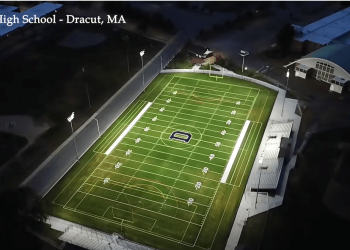Plastic is continuously piling up in landfills, oceans and our environment. Plastic has become a fixed part of our everyday life in the form of soft drink bottles, parts of any vehicle, toys, packaging materials, and many other things.
The Environmental Protection Agency exclaimed in their reports of 2017 that only a small part of the whole plastic waste is getting recycled, about 8.4%.
The BOTTLE (Bio-Optimized Technologies to keep Thermoplastics out of Landfills and the Environment) Consortium is the United States Department of Energy multi-organization consisting of national laboratories working together to address the problem of rising plastic waste in our environment.
The BOTTLE Consortium includes researchers from Argonne National Laboratory, Los Alamos National Laboratory, National Renewable Energy Laboratory, SLAC National Accelerator Laboratory, Colorado State University, Massachusetts Institute of Technology, Montana State University, Northwestern University, University Of Portsmouth and now will also include researchers from the laboratory which recently joined the Consortium, i.e., Oak Ridge National Laboratory.
The ORNL (Oak Ridge National Laboratory) scientists in collaboration with other national laboratories, will support the research to develop new plastics that will be recyclable by design, and customized microbes with processes to degrade current plastics in the form of chemical building blocks, which can be reused to form higher-value products.
These efforts and research will simultaneously aim to degrade the waste in landfills.
Greg Beckham, the lead for BOTTLE Consortium and senior research fellow at NREL (National Renewable Energy Laboratory), shed light on the rising plastic waste in the environment at an alarming rate. He said that “Plastics have become necessary in our lives, but plastic waste can normally subsist for centuries in our biosphere.” He also added that “To stop the rising tide of plastic that are entering our landfills and the natural world needs an urgent action on a global level. And overcoming these challenges is the core mission of BOTTLE”.
Adam Guss, Genetic and Metabolic Engineer – Biosciences Division, ORNL (Oak Ridge National Laboratory), is enthusiastic about implementing similar tools and methods for engineering microbes to recycle plastics. He is putting efforts to modify non-model microbes that are difficult to grow in labs. He recently led an ORNL (Oak Ridge National Laboratory) team that modified a single microbe that was able to consume five of the most abundant components simultaneously of lignocellulosic biomass.
It was a significant step in the biochemical conversion process (to turn plants into useful renewable fuels and chemicals) as well as the process was relatively cost-effective.
Guss explained that “Microbes present in the environment have an amazing pattern of genes and metabolic pathways that can be very useful in converting plastics into new chemicals, but unfortunately, many of these microbes have not been discovered yet”.
Guss, with his team, is currently isolating bacteria from soil, compost and any other environment that can grow on deconstructed plastics. Ultimately, these biological methods will create the chemical components needed to produce the easy-to-recycle next-generation plastics.
These efforts of BOTTLE Consortium is an essential component of DOE’s (Department Of Energy) Plastic Innovation Challenge, to accelerate innovation in energy-efficient plastic recycling technologies by 2030.
DOE Bioenergy Technologies Office and Advanced Manufacturing Office within the Office of Energy Efficiency and Renewable Energy funds the research.





